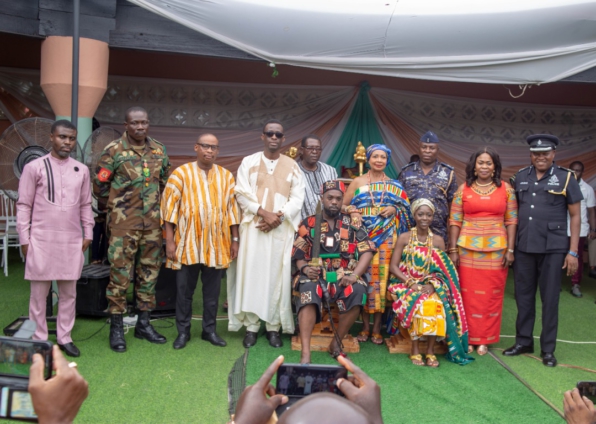
Audio By Carbonatix
The Ahanta Traditional Council has held a colourful coronation ceremony to install Christopher Davis, a Bahamian national who recently reconnected to his roots in Ghana, as safohen.
Mr Davis, son of the Prime Minister of the Caribbean nation, is a researcher who has been studying the historical connections between Bahamas and Ghana - specifically the Ahanta area of the Western Region.
He has also started a movement to reconnect people of African heritage in the diaspora, taken away through the slave trade, back to their roots.
He is also exploring the similarities between the Junkanoo Festival - Bahamas’ largest festival and the Ghanaian fancy dressing festival celebrated in the Western Region.
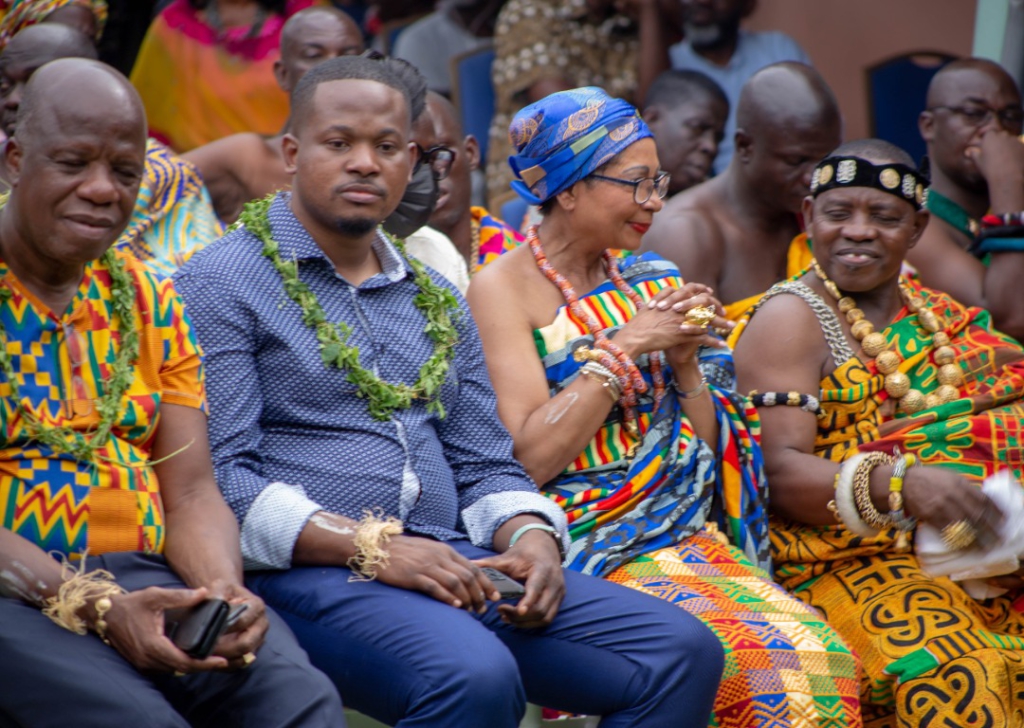
The event, held at Owusua (Busua), the traditional capital of the Ahanta people, was attended by the crème de la crème of Ahanta Chiefs and many key people from government and civil society.
The Western Regional Minister, Kwabena Okyere Darko-Mensah underscored the need for Africa to bring back its citizens in the diaspora, so they can support the continent's growth and reorganisation.
According to the MP for Sekondi-Takoradi, the chieftaincy institution would be a major catalyst in this agenda.
“(Nananom), distinguished guest, ladies and gentlemen, as we all know, chieftaincy is one of the most ancient and enjoyed traditional institution which has displayed remarkable resilience over the period. The chieftaincy institution also stands as a symbol of unity in the modern-day society,” he said.
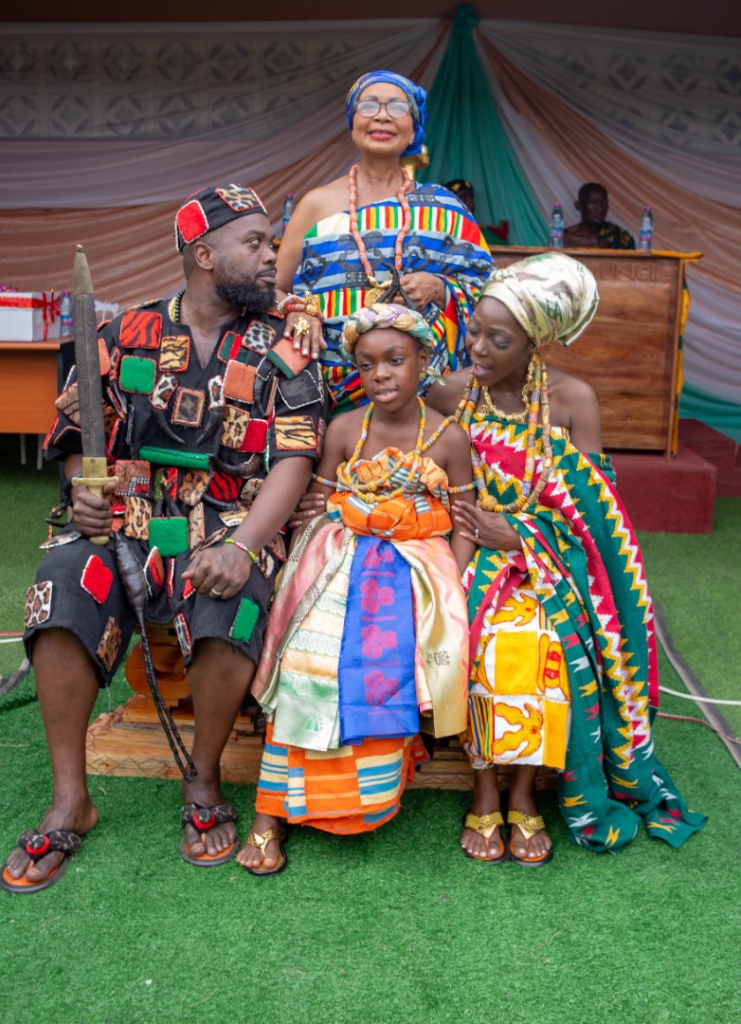
He continued to say that “generally, Nananom are expected to promote development through land administration to serve as gatekeepers between the central government and their subjects, promote unity and use their influence and expertise as the means for introducing sustainable development initiatives in their localities.”
The First Lady of Bahamas, Ann Marie Davis, who also happens to be the mother of Mr. Davis, was present to witness the colourful ceremony.

“To enhance cultural activities between the Bahamas and Ghana, is something I will be pursuing. We wish to build the cultural ties which Christopher has uncovered in his research here in Ahanta. We have our Ambassador of Cultural Affairs, Jamaal Rolle, and Foreign Service Officer, Kenneth C. Wallace Whitfield here who will lead the charge as we step forward to strengthen ties and trade to see whether you (Western Regional Minister) can get some of the seven million tourists to come here through that foreign trade.
"We will find the best means possible to build businesses and the connections that we need,” she noted.
She expressed hope that this would mark the beginning of greater partnership.
“I hope that we can use this unique moment to go back into time and rekindle our shared history and heritage. I hope that we can take it from here and build from where we were forced to abandon our own development as a people because of the slave trade,” she said.
She pledged the continuous support of her country to the development agenda of the Ahanta area.
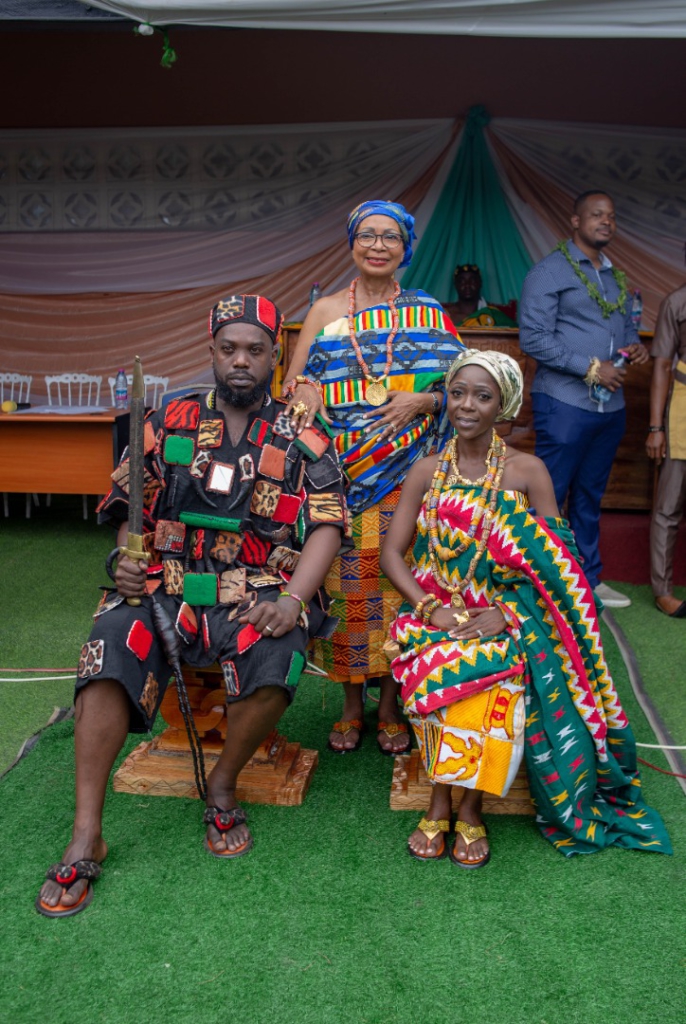
Following his coronation, Mr Davis would now be known as Jan Kwa II; named after the brave Ahanta warrior, Jan Kwa of Princess Town.
It is alleged that the famous Junkanoo parade which is widely celebrated in the Caribbean and America is named after this warrior.
The Bahamas has a unique connection with the Ahanta area.
According to studies done by Mr Davis in Ghana and in the Caribbean, the first slave ships that transported people from Africa arrived in the Bahamas. They were all from Princess Town, a small seaside village in the Ahanta area of the Western region.
It was through the exodus that followed more than 500 years ago, that Jan Kwa I, the Ahanta warrior who fought tirelessly against the slave trade, was captured and sent to the Caribbean.
His arrival in the Bahamas is believed to have started the Junkanoo festival - a colourful parade which has its roots in the Kundum festival and dance of the Ahanta people.
Safohen Jan Kwa II, for his part, spoke about the key role that the Princess Town community must play in the process to reunite Ahanta with its diaspora citizens.
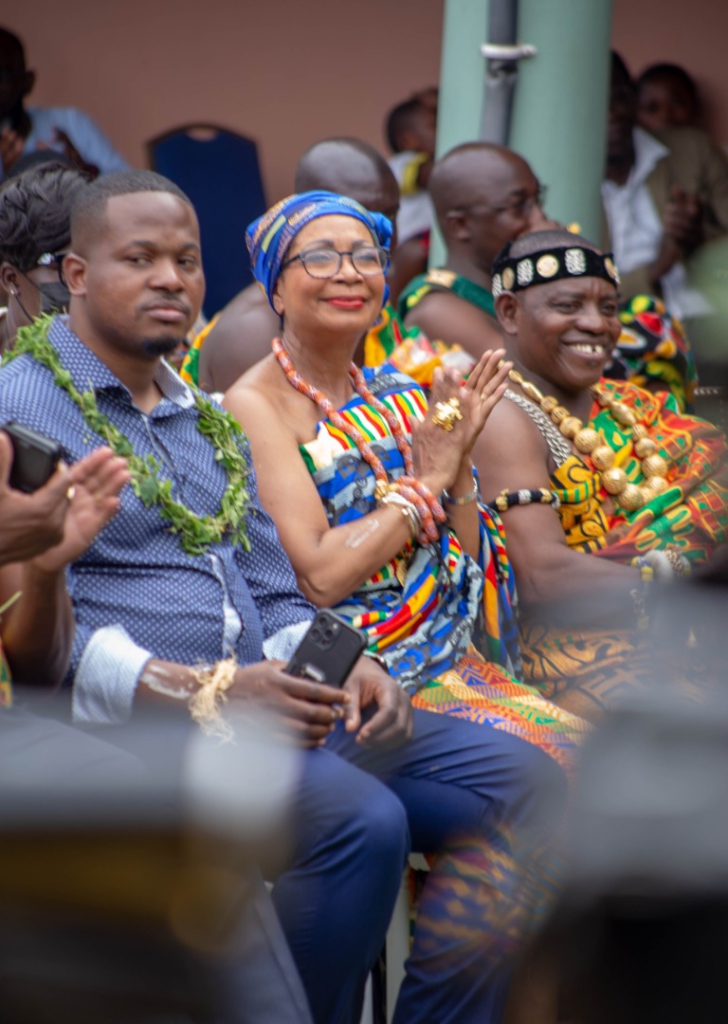
He further asked for the support of the chiefs and people of Ahanta in his quest to bring development to the area.
“I want everybody to follow me as best as they can to Princess town to see some of the sites and to see that small town that connects the entire diaspora. Over 14 countries all connected to the Ahantas. To the history of slavery in Ahanta, I am proud of this reconnection so I urge us all to follow me to Princess Town to see the fort and the mansion of Jan Kwa I, to see where it began for us in Bahamas, Jamaica, the United States and the list goes on and on,” he said.
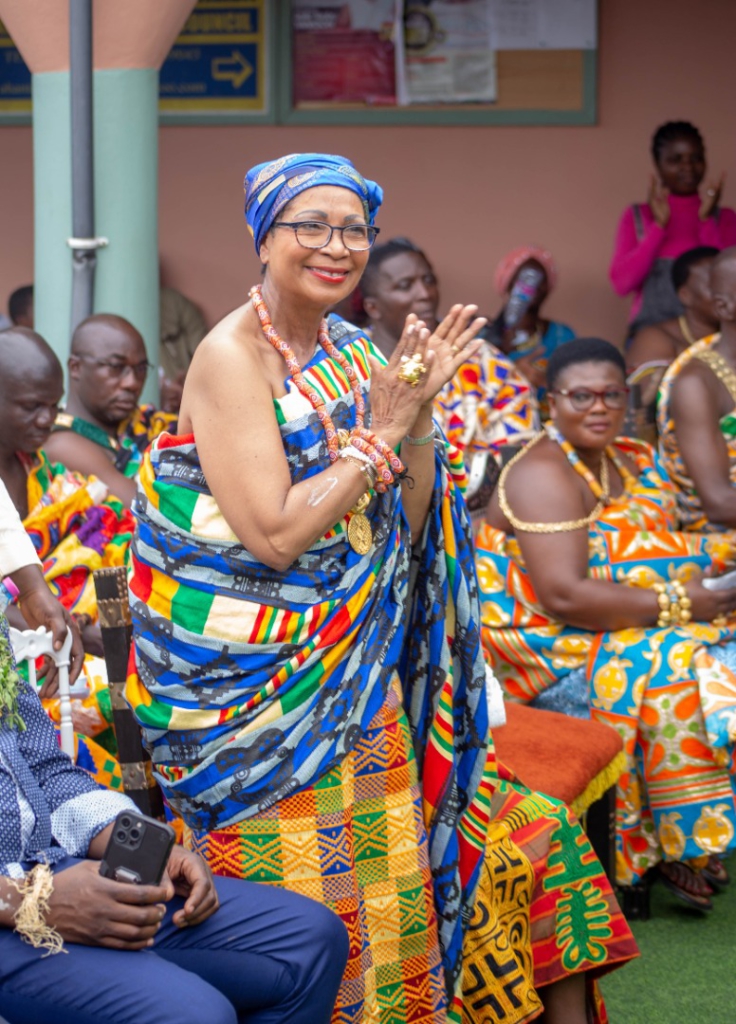
For their part, the Ahanta Traditional Council was hopeful that the fire that had been lit would keep burning for people far and near to see and come back to their roots.
Nana Etsin Kofi II, Divisional Chief, Aboadi, who spoke on behalf of Otumfuo Baidoo Bonsoe XV, the Ahantahen said “we are proud that you are home and we are giving you this honor to tell the rest of the world that Ahanta is open to everybody. Open to everyone who would help us build Ahanta,” he added.
Latest Stories
-
Ghana’s global image boosted by our world-acclaimed reset agenda – Mahama
5 minutes -
Full text: Mahama’s New Year message to the nation
5 minutes -
The foundation is laid; now we accelerate and expand in 2026 – Mahama
25 minutes -
There is no NPP, CPP nor NDC Ghana, only one Ghana – Mahama
27 minutes -
Eduwatch praises education financing gains but warns delays, teacher gaps could derail reforms
40 minutes -
Kusaal Wikimedians take local language online in 14-day digital campaign
1 hour -
Stop interfering in each other’s roles – Bole-Bamboi MP appeals to traditional rulers for peace
2 hours -
Playback: President Mahama addressed the nation in New Year message
2 hours -
Industrial and Commercial Workers’ Union call for strong work ethics, economic participation in 2026 new year message
4 hours -
Crossover Joy: Churches in Ghana welcome 2026 with fire and faith
4 hours -
Traffic chaos on Accra–Kumasi Highway leaves hundreds stranded as diversions gridlock
4 hours -
Luv FM Family Party in the Park: Hundreds of families flock to Luv FM family party as more join the queue in excitement
4 hours -
Failure to resolve galamsey menace could send gov’t to opposition – Dr Asah-Asante warns
4 hours -
Leadership Lunch & Learn December edition empowers women leaders with practical insights
4 hours -
12 of the best TV shows to watch this January
5 hours

